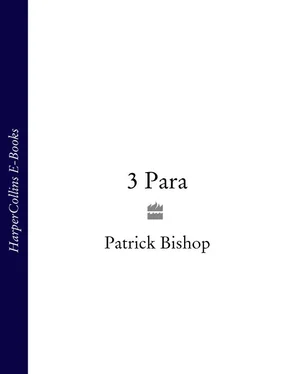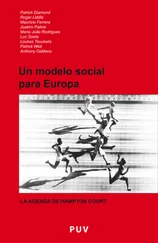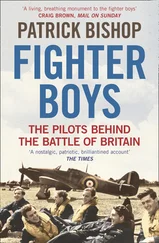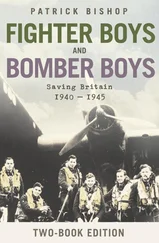A medic, Lance Corporal Paul ‘Tug’ Hartley, moved forward to help. He threw his medical pack on the ground in front of him to detonate any mines in his path. He reached Wright safely. But as he arrived Fusilier Andy Barlow moved back to give him room, treading on a mine that blasted shrapnel into his lower leg. The blast also blew Hartley to the ground and wounded Private Dave Prosser.
All around, men lay bleeding into the dirt. Hunched over the radios, Tootal and his staff had been listening with mounting dismay as the picture grew darker. The only way the wounded and the stranded could escape the minefield was if they were lifted out. Tootal harassed Kandahar for updates on when the winch-equipped Black Hawk would be ready to haul his men to safety. Nearly four hours after the initial request, two Black Hawks arrived. Two American aircrew were lowered into the minefield and, one by one, winched everyone aboard.
When the casualties reached Bastion, Tootal and 3 Para’s RSM (regimental sergeant major), John Hardy, were at the landing site to meet them. As the helicopter touched down, they jumped aboard. Six men were stacked across the floor. Three had stumps where one of their legs had been. One was dead. Mark Wright, who had been chatting and joking with his mates during the two and a half hours they had waited to be rescued, had bled to death on the way home. The wounded were hurried away. Hardy and Tootal zipped Wright into a body bag and carried him to an ambulance.
Tootal had been back in the JOC for fifteen minutes when another spate of emergency signals squawked over the radio. There were more wounded soldiers in two of the platoon houses. In Sangin, three soldiers had been hit by mortar shrapnel as they stood in an orchard within the walls of the base being briefed on their tasks for the evening. Mortar fire had injured two more British soldiers and two of their Afghan allies in Musa Qaleh. There was, however, only one Chinook helicopter available to mount a casualty evacuation – a ‘casevac’.
The helicopter, with the Immediate Response Team of medics aboard, was ordered to go to Sangin first. One of the wounded, Lance Corporal Luke McCulloch, had been hit in the head and looked close to death. The casevac chopper was flown by Major Mark Hammond of the Royal Marines. The flight took twenty minutes. As Hammond began his final approach, the JOC fizzed with tension. This was when the helicopters were most vulnerable to the Taliban RPGs and heavy machine guns. The loss of a chopper would not only be a human disaster. It would be a huge victory for the Taliban, and could lay the ground for a British tactical defeat. There was already talk in London of pulling out of the farthest-flung platoon houses to minimise the risk of a helicopter being shot down.
As the Chinook swooped towards the landing site, Hammond saw green tracer fire flowing towards him from the fields, thickly planted with tall crops that lay south of the base. Reluctantly, he swung the Chinook away and headed back to Bastion.
He and his crew had been on the ground only a few minutes when they were ordered off again, this time to try to retrieve the two casualties at Musa Qaleh. The base doctor there had warned Tootal that he could keep one of his patients alive only for another six or seven hours. Musa Qaleh was the helicopter crews’ most hated destination. The landing site was in the middle of a built-up area full of insurgent firing points. When they reached the town at 8.15 p.m., the Taliban were waiting. One of the escorting Apaches saw two RPGs swish past the Chinook, missing it by 10 yards. To attempt a landing would be suicidal. Again Hammond was forced to return to base. When they arrived at Bastion they found their chopper spattered with strike marks. One round had hit the root of a rotor blade, inflicting potentially lethal damage.
Tootal decided to risk another attempt before the night was over. A replacement was found for the damaged Chinook. Artillery batteries and aircraft were put on alert to batter Taliban positions around the two bases as the helicopter darted in. Hammond, along with his three crewmates and the four members of the medical team, took off for Sangin once more. He brought the Chinook into the landing site low and fast. As it settled in a whirlwind of dust, a Spartan armoured vehicle raced up to the back ramp, where the crew snatched the casualties aboard. The helicopter had barely touched the ground before it was climbing again, chased by streams of green tracer spouting from the Taliban positions. The sound of the engine was drowned out by the ear-battering din as the crew returned the fire from the door guns.
The ambulances were waiting at Bastion to hurry the casualties away to the base hospital. It was too late for Luke McCulloch. The twenty-one-year-old, one of the contingent of Royal Irish Regiment soldiers fighting alongside the Paras, was pronounced dead before he got there.
In the course of the day Mark Hammond had experienced enough danger to last most pilots a lifetime, but he volunteered for a last, risk-laden task. For the second time that night he went back to Musa Qaleh. Tootal had racked up every aircraft available, amassing an escort of Apache attack helicopters, A-10 ‘Tankbusters’ and a Spectre gunship to shepherd the Chinook in. As the chopper arrived, just before 1.30 a.m., the aircraft strafed the Taliban firing points around the base. Despite the barrage, the insurgents managed to launch an attack and bullets cracked around the Chinook as it touched down, picked up the wounded and climbed into the night.
The Chinook finally arrived back safely at 2 a.m. Before he collapsed into bed, Stuart Tootal found time to write up his diary. It had been an extraordinary day, one that those involved in its dramas would never forget. He had spent the previous fourteen hours ‘endeavouring to get our wounded out from three different locations. Two died on the way and three have had legs amputated. Some will return to combat and some will not.’
There had been many times since the Paras had deployed when he had turned to RSM Hardy before heading to his cot and said, ‘That was a day of days.’ But there had not been a day like this one. There had been tragedy, he wrote, but also ‘much courage, both by the wounded and those who went to get them. There has been sorrow, sadness, fortitude and even humour. A difficult day, no doubt, but one to be proud of, having seen the way people have behaved.’
His last thought before he dropped into an exhausted sleep was, ‘I really don’t want tomorrow to be like today but it just might be. It might actually be worse.’
2
3 Para had a saying: ‘Be careful what you wish for.’ When word got around that they might be on their way to Afghanistan, everyone welcomed the news. There was a feeling that a major operational deployment for the Parachute Regiment was long overdue. It had been twenty-four years since they were involved in heavy fighting. That had been in the Falkands, a campaign that loomed large in the Para legend.
The Paras had returned from the South Atlantic wreathed in glory. There were two VCs to add to their hoard of medals. They won famous victories at Goose Green and Mount Longdon. But in the interval between the Falkands and Helmand they had done little war fighting. They were not sent to the first Gulf War and were given only a subsidiary role in the second. The Kosovo deployment in 1999 was uneventful. There had been the odd exciting excursion, like the mission to Sierra Leone in 2000 when 1 Para helped rescue eleven Royal Irish Rangers held hostage by the rebel West Side Boys militia. But 3 Para’s duties in recent years had mostly involved gruelling but increasingly routine tours of Northern Ireland and Iraq.
By the summer of 2005, when the rumours of a deployment to Afghanistan began to gain substance, everyone was ready for a demanding task that would allow them to measure themselves against the soldiers who had gone before them.
Читать дальше












